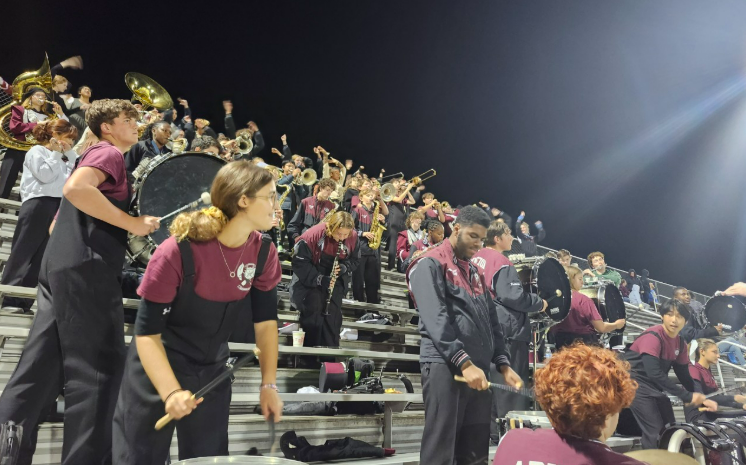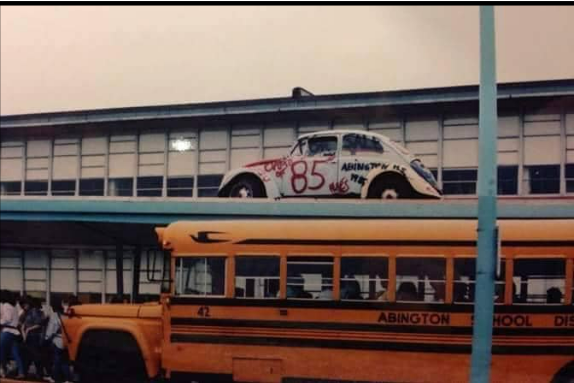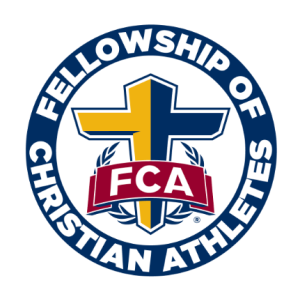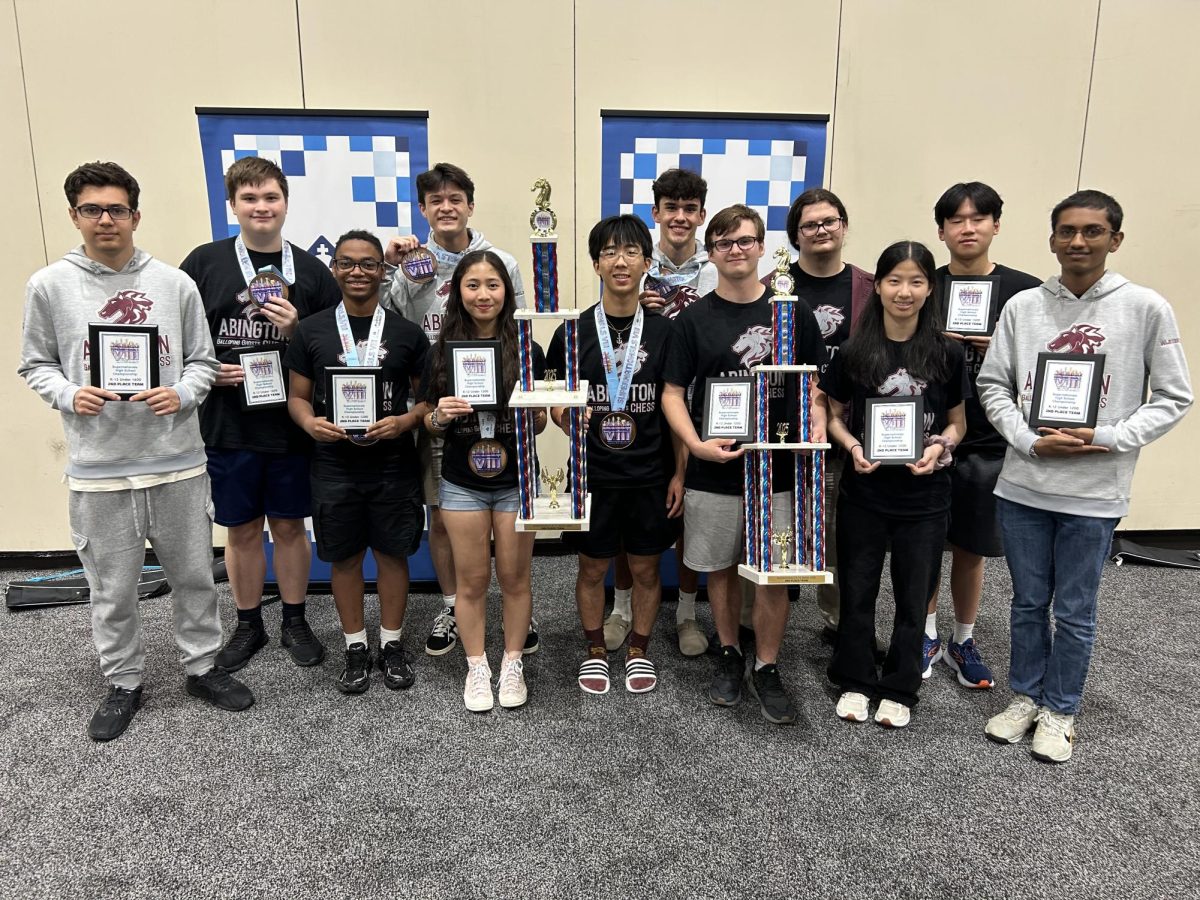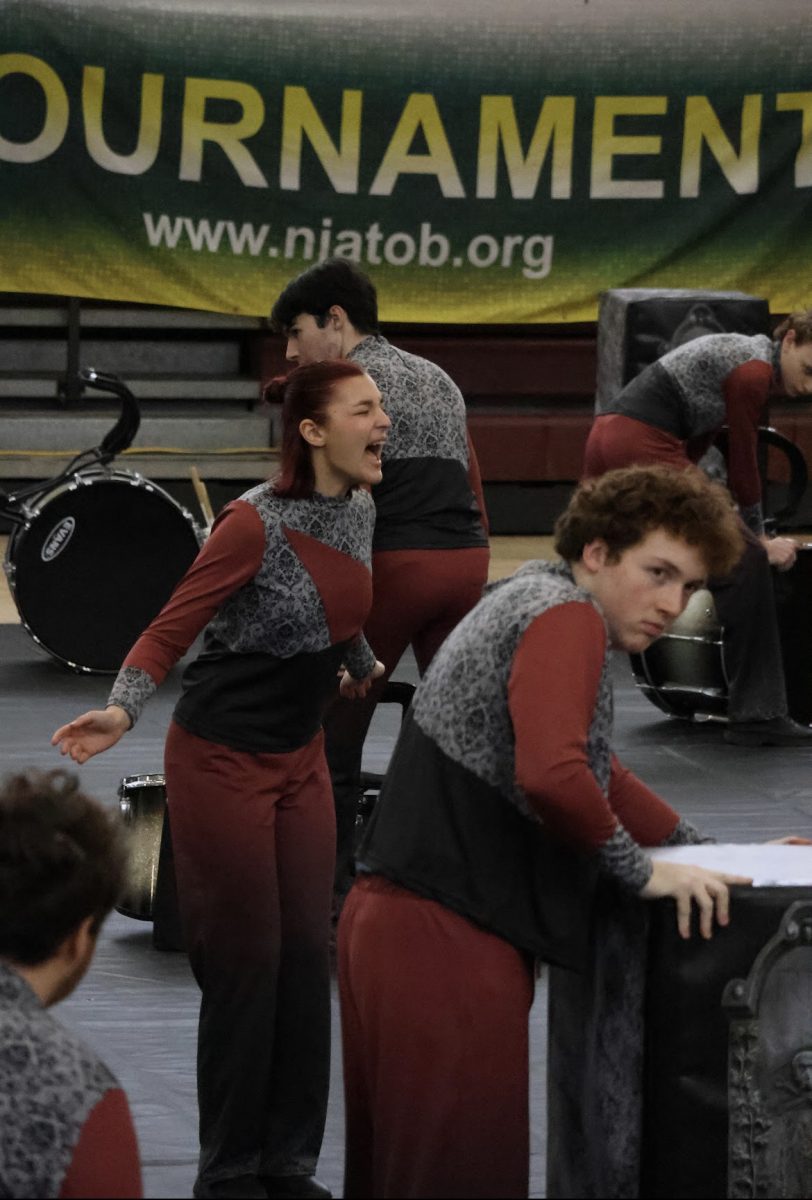If you’ve ever been to a high school football game, you may have glanced over to a place littered with wind instruments, drums on drum stands, and strewn about uniform pieces. At Abington, this area is sectioned off by yellow tape, and though it is only a stone’s throw from the student section, you may not have paid much attention to it. If that is the case, you might be curious to learn about the inner workings of the school’s marching band during and in preparation of football games, how songs are selected, and what exactly the band gets up to during those autumnal Friday nights.
The Abington Marching Ghosts spend a small portion of their rehearsals during band season practicing stand tunes. Typically, every few weeks on a Monday, they will have a dedicated two hour stand tune rehearsal. The rest of the time during these rehearsals is spent working on the roughly seven-minute-long field show. They have small flip books which contain the sheet music for most of the tunes, removing the necessity of memorization for many songs. Brass tunes, however, are often not written down anywhere, and are passed down from older (veteran) students to the new (rookie) students each year. As the name might suggest, these songs only have parts for the brass instruments, while the woodwinds learn specific dances for each tune, which are also passed down. Examples of brass tunes include Seven Nation Army, S&M, Earthquake, and Tank.
Songs are chosen to be put in flipbooks by the band director (in our case, Mr. DeTato). Many of the songs currently in the roster have been there from previous years. However, if a student wishes to, they can write their own arrangement of a new song and submit it for consideration. If it is approved, it will be taught to the band and added to the rotation of stand tune songs.
During the football games, the drum major, or the person who conducts, stands on a ladder at the bottom of the band section. Along with conducting the band, the drum major also selects what stand tune they will play. They then relay this information to the band members, either by writing on a whiteboard or simply using their voice. Drum majors must always be aware of what is happening on the field, as the marching band cannot perform during the line of scrimmage for fear it will distract the players. If this event occurs after a song has already begun, the drum major will make a specific gesture that tells the band to sing their parts instead. There is another gesture for when it is safe to play instruments again. If there is more than one drum major during a season– which there often is– they will take turns conducting stand tunes, switching every game. What’s more, once every season the next year’s drum major will take the current major’s place during the game to practice conducting for the following season. In both cases, the benched major will play an instrument in the stands with the rest of the band.
During events like a touchdown, an extra point, or winning the game, all of which have predetermined songs associated with them (Saints, The Abington Fight Song, and Mr. Jacobs, respectively), the drum major may just begin conducting, trusting the band to understand the assignment through the context of the ongoing game. (Fun fact: The Abington Fight Song is actually a variation on the school’s Alma Mater). Furthermore, if an event looks imminent, the band members have a superstitious tradition of not saying the song names aloud, and the major will instead shout, “Get the thing ready!” or “Get out the thing!”, again relying on context to convey the message.
So what does the band do when they aren’t playing? They typically get a break during the third quarter, in which they can get concessions and rest. If they have not already, they must remove their hats, jackets, gauntlets, and gloves at this time to avoid getting food or other spills onto their uniforms. Most other schools also give their bands a break during the third quarter, so the students can use this time to introduce themselves to and hang out with the other school’s band. The students must return to the band section at 0:00 of the third quarter so that they can begin playing soon into the fourth quarter.
All in all, the marching band’s presence contributes heavily to the atmosphere of the game. It is interesting to think about all the time and effort that goes into preparing and performing stand tunes, something that can feel like background noise compared to what is happening on the field. Perhaps this information will allow you to more thoroughly enjoy and pay attention to the bands at future football games.

